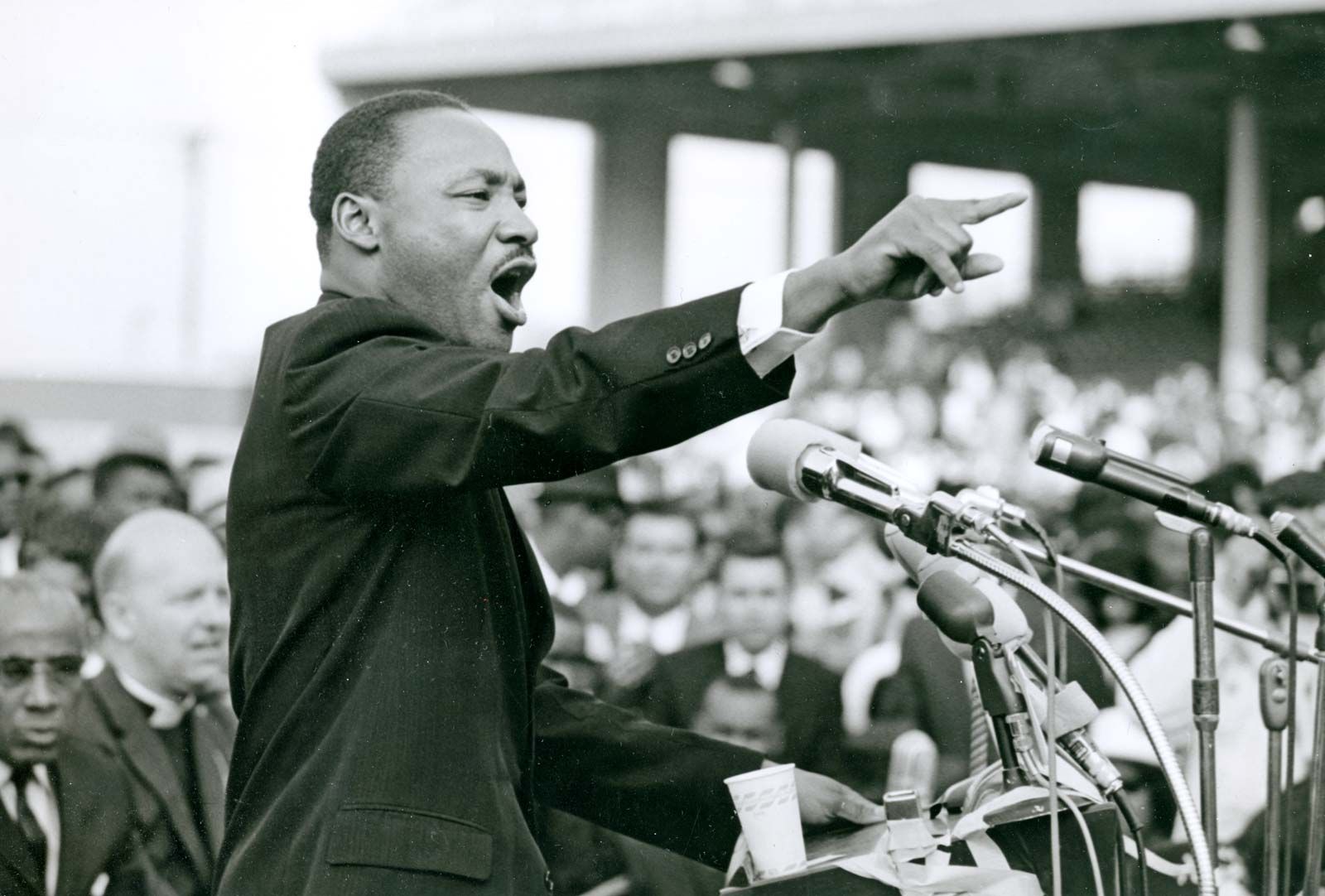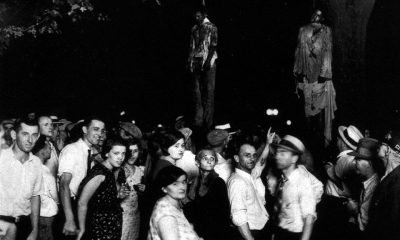States
The Ongoing Legacy Of Martin Luther King Jr.’s Fight Against Racism

Martin Luther King Jr.’s continuous pursuit of justice and equality, especially against structural racism, is his legacy. His message, pertinent now as during the civil rights fight, emphasizes the need to combat all types of racism.
King maintained that American culture needed significant structural reforms to achieve racial equality. He believed judicial rulings and political rhetoric alone could not bring Black people justice. He demanded that white America accept these systemic changes. This idea was well expressed in his 1969 essay, “A Testament of Hope.”
King also stressed that justice was necessary for true peace. He famously observed, “True peace is not simply the absence of stress; it is the presence of justice.” This concept shaped his civil rights efforts and continues to guide today’s fight against prejudice.
Understanding The Complexity Of The Term ‘Equality’
King noted that white and Black people saw “equality” differently. He saw that the civil rights movement struggled without a shared vocabulary for equality.
King lamented the need to overcome this language divide in a 1968 address before his assassination. He noted that many white people, despite good intentions, felt Black people needed to change to achieve equality. This myth has long plagued racism prevention.
Joe Feagin, a notable sociologist, says King’s insights concerning white people’s concept of equality are still relevant today. White Americans bear the brunt of 400-year-old systematic racism. They must end racial prejudice and inequality to create a genuinely free and democratic society.
Feagin stresses that all ages, mainly white Americans, must honestly examine the country’s structural racism to achieve this aim. This educational path is challenging and frequently unexplored.
Martin Luther King Jr Call For Accountability And Institutional Change
He is (1963) March on Washington’s “I Have a Dream” speech shows his steadfast dedication to holding white people responsible for the founding fathers’ promise of freedom and equality.
In this famous speech, King referred to Lincoln’s Emancipation Proclamation as “five score years ago.” A century after this historic move toward racial equality, Black Americans still faced segregation and prejudice.
King also condemned police violence against Black people. He understood that structural concerns perpetuating injustices had to be addressed to change. The March on Washington demanded institutional and structural improvements in job training, voting rights, employment discrimination, and segregation.
Despite King’s legacy, the Southern Poverty Law Center found that civil rights education requirements generally fell short. Most states briefly discuss this significant human rights struggle, focusing on Martin Luther King and Rosa Parks.
This approach opposes King’s notion that white people must “walk in the pathways of their Black brothers and feel few of the pain and harm that throb without letup in their daily lives.” Honoring King’s legacy by accepting his goal for systemic change and addressing racism in our culture is vital as the US struggles with racial inequities and transformation.
Read Also: Medical Racism In America Exposed Through NFL Star’s Care
The Ongoing Struggle Against Systemic Racism
While Martin Luther King Jr.’s speeches motivated and led the struggle against institutional racism, the fight continues. Racial unrest and appeals for justice are common now, as they were when King led the civil rights movement. Systemic racism remains a significant issue in America.
Recent years have seen police violence, racial profiling, and discrimination in Black neighborhoods. National demonstrations against police killings of Black people have reinforced the necessity for fundamental reforms in our society. King’s call for drastic changes remains pertinent.
In the 21st century, the Black Lives Matter movement demonstrates the ongoing battle for justice and equality. It demands structural reforms to address racial inequality in police, education, and the criminal justice system, like King. The movement condemns structural racism and seeks justice, echoing King’s demand for change.
The Role Of Education In Combating Racism
Education is critical to fighting systematic racism. Knowledge and comprehending the history of racial inequity were crucial to Martin Luther King Jr. Modern attempts are made to teach the next generation about the civil rights struggle and its effects.
Concerned about the lack of civil rights history instruction, there is a rising drive to include more. Students should learn about civil rights activists like Malcolm X, Ella Baker, and Fannie Lou Hamer, who helped fight for racial equality.
Additionally, programs are being designed to help pupils comprehend systemic racism, its history, and its ongoing effects on Black Americans. This teaching promotes empathy and understanding, reflecting King’s idea that white people must realize Black people’s suffering.
Bridging The Gap In Perceptions Of Equality
Despite our efforts to eradicate structural racism, reconciling different views of equality remains difficult. Martin Luther King Jr.’s plea for equality remains relevant. To go ahead, open and productive talks must overcome this divide.
Whites, Blacks, and all races must define equality together. Recognizing past injustices and structural racism, we fight for a society where justice, fairness, and opportunity are available to everyone.
To accomplish sustainable change, we must follow King’s advice and work to dismantle institutional racism. We can only attain absolute racial equality and commemorate Martin Luther King Jr. by turning his words into actions that improve society.
The Impact Of King’s Ideals On Contemporary Activism
Martin Luther King Jr.’s principles shaped American action. Modern civil rights groups embrace his nonviolent protest and peaceful pursuit of justice, giving a solid foundation for change.
The Black Lives Matter movement, which began after Trayvon Martin’s 2013 killing and gained popularity, continues King’s legacy. The campaign promotes peaceful protest and fights racism and police brutality. King’s nonviolent resistance concept inspires 21st-century activists.
Modern activists utilize social media and technology to recruit supporters, as King did to raise awareness of civil rights problems. Documenting atrocities and sharing them globally has changed activism and social change.
Recognizing The Role Of Allies In The Fight Against Racism
Black people cannot resist systematic racism alone. Allies, people of other races who assist those confronting racial injustice, are vital to change. Martin Luther King Jr.’s civil rights action notion is relevant to today’s fight against racism.
King stressed the necessity for people of all races to work together for social justice. Allies may promote systemic change in the workplace, education, and public policy by exercising their privilege.
The definition of ally goes beyond social media and private messages. It requires joining movements, pushing for legislative reforms, and opposing racial inequity. King enthusiastically supported this idea, which remains fundamental to the battle against institutional racism.

-

 States2 weeks ago
States2 weeks agoPearlie Golden 93-Year-Old Black Woman Shot By Texas Cop
-

 States2 weeks ago
States2 weeks agoLynching Of Thomas Shipp Tragedy Of Racism Echoes Through History
-

 States2 weeks ago
States2 weeks agoTragedy Unveils Racial Tensions Tarika Wilson Story
-

 States2 weeks ago
States2 weeks agoLayers Of Racial Tension The Mario Woods Tragedy And San Francisco Path To Justice
-

 States2 weeks ago
States2 weeks agoThe Killing Of Terence Crutcher And The Fight For Racial Justice

















You must be logged in to post a comment Login